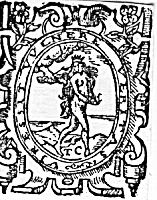|

南开校友及各界朋友信息交流的平台 |
|
高清正
高清正先生,河南人。 1961年毕业於南开外文系,留校任外文系教授。 后因家庭原因调到天津民航大学任教授。 2006年英年早逝。
|
English Poet Edmund Spenser (1552-1599) |
 Edmund Spenser
Edmund Spenser
( Re-use of the work of art under the terms of the GNU Free Documentation License)
|
Edmund Spenser was the eldest son of John Spenser, a Lancastrian gentleman by birth who had become a journeyman of the Merchant Taylors' Company. Spencer attended the recently-founded Merchant Taylors' School and then went to Pembroke Hall in Cambridge. While still at university he wrote some verses in the style of Petrarch and Du Bellay, and these were published in van der Noodt's "Theatre for Worldlings". On leaving Cambridge, Spenser became secretary to John Young, the bishop of Rochester. In 1579 he obtained a place in the Earl of Leicester's household where he made friends with the Earl's nephew, Philip Sidney. He wrote the Shepheardes Calender at this time. The following year he began work on The Faerie Queene though he published none of it until 1589 when he entrusted the first three books to his London publisher, Ponsonby. He also married his first wife, Machabyas Chylde, at about this time. In 1580 Spenser was appointed secretary to Lord Grey of Wilton and attended him on his trip to Ireland. Spenser returned to settle in Ireland in 1591 and wrote Colin Clouts in this year. He became a landowner and returned to London only to supervise the publication of his poetry. He married again to Elizabeth Boyle in 1594 and his poems Amoretti and Epithalamion celebrate the wooing and marriage.
During a local insurrection in 1598, Spenser's home Kilcoman Castle was burnt and Spenser had to flee to Cork along with his wife and children. It is feared that some of his work was lost during this fire. Spenser died in London. |
EASTER (Sonnet)
by Edmund Spenser
MOST glorious Lord of Lyfe! that, on this day,
Didst make Thy triumph over death and sin;
And, having harrowd hell, didst bring away
Captivity thence captive, us to win:
This joyous day, deare Lord, with joy begin;
And grant that we, for whom thou diddest dye,
Being with Thy deare blood clene washt from sin,
May live for ever in felicity!
And that Thy love we weighing worthily,
May likewise love Thee for the same againe;
And for Thy sake, that all lyke deare didst buy,
With love may one another entertayne!
So let us love, deare Love, lyke as we ought,
--Love is the lesson which the Lord us taught
|

|
A Ditty
by Edmund Spenser
|
|
|
| |
In praise of Eliza, Queen of the Shepherds
SEE where she sits upon the grassie greene,
(O seemely sight!)
Yclad in Scarlot, like a mayden Queene,
And ermines white:
Upon her head a Cremosin coronet
With Damaske roses and Daffadillies set:
Bay leaves betweene,
And primroses greene,
Embellish the sweete Violet.
Tell me, have ye seene her angelick face
Like Phoebe fayre?
Her heavenly haveour, her princely grace,
Can you well compare?
The Redde rose medled with the White yfere,
In either cheeke depeincten lively chere:
Her modest eye,
Her Majestie,
Where have you seene the like but there?
I see Calliope speede her to the place,
Where my Goddesse shines;
And after her the other Muses trace
With their Violines.
Bene they not Bay braunches which they do beare,
All for Elisa in her hand to weare?
So sweetely they play,
And sing all the way,
That it a heaven is to heare.
Lo, how finely the Graces can it foote
To the Instrument:
They dauncen deffly, and singen soote,
In their meriment.
Wants not a fourth Grace to make the daunce even?
Let that rowme to my Lady be yeven.
She shal be a Grace,
To fyll the fourth place,
And reigne with the rest in heaven.
Bring hether the Pincke and purple Cullambine,
With Gelliflowres;
Bring Coronations, and Sops-in-wine
Worne of Paramoures:
Strowe me the ground with Daffadowndillies,
And Cowslips, and Kingcups, and loved Lillies:
The pretie Pawnce,
And the Chevisaunce,
Shall match with the fayre flowre Delice.
Now ryse up, Elisa, decked as thou art
In royall aray;
And now ye daintie Damsells may depart
Eche one her way.
I feare I have troubled your troupes to longe:
Let dame Elisa thanke you for her song:
And if you come hether
When Damsines I gether,
I will part them all you among. |
|
|
Amoretti III: The Sovereign Beauty
by Edmund Spenser
|
|
|
| |
The sovereign beauty which I do admire,
Witness the world how worthy to be praised:
The light whereof hath kindled heavenly fire
In my frail spirit, by her from baseness raised;
That being now with her huge brightness dazed,
Base thing I can no more endure to view;
But looking still on her, I stand amazed
At wondrous sight of so celestial hue.
So when my tongue would speak her praises due,
It stopped is with thought's astonishment:
And when my pen would write her titles true,
It ravish'd is with fancy's wonderment:
Yet in my heart I then both speak and write
The wonder that my wit cannot endite.
|
|
|
My Love Is Like To Ice
by Edmund Spenser
|
|
|
| |
My love is like to ice, and I to fire:
How comes it then that this her cold so great
Is not dissolved through my so hot desire,
But harder grows the more I her entreat?
Or how comes it that my exceeding heat
Is not allayed by her heart-frozen cold,
But that I burn much more in boiling sweat,
And feel my flames augmented manifold?
What more miraculous thing may be told,
That fire, which all things melts, should harden ice,
And ice, which is congeal's with senseless cold,
Should kindle fire by wonderful device?
Such is the power of love in gentle mind,
That it can alter all the course of kind.
|
|
|
|
| |
YE learned sisters which haue oftentimes
beene to me ayding, others to adorne:
Whom ye thought worthy of your gracefull rymes,
That euen the greatest did not greatly scorne
To heare theyr names sung in your simply layes,
But ioyed in theyr prayse.
And when ye lift your owne mishaps to mourne,
Which death, or loue, or fortunes wreck did rayse,
Your string could soone to sadder tenor turne,
And teach the woods and waters to lament
Your dolefull dreriment.
Now lay those sorrowfull complaints aside,
And hauing all your heads with girland crownd,
Helpe me mine owne loues prayses to resound,
Ne let the same of any be enuide,
So Orpheus did for his owne bride,
So I vnto my selfe alone will sing,
The woods shall to me answer and my Eccho ring.
|
|
|
|
Of this worlds theatre in which we stay,
My love like the spectator ydly sits
Beholding me that all the pageants play,
Disguysing diversly my troubled wits.
Sometimes I joy when glad occasion fits,
And mask in myrth lyke to a comedy:
Soone after when my joy to sorrow flits,
I waile and make my woes a tragedy.
Yet she, beholding me with constant eye,
Delights not in my merth nor rues my smart:
But when I laugh she mocks, and when I cry
She laughs and hardens evermore her heart.
What then can move her? if nor merth nor mone,
She is no woman, but a senceless stone.
|
|


(This work of art is in the public domain.)
|
   
|

